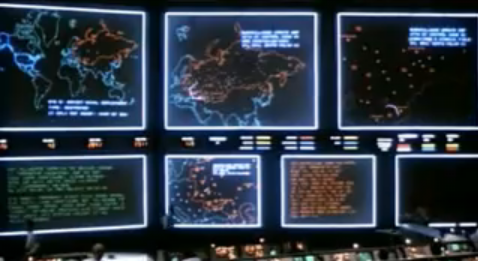Banksy, BP, Boycotts
 Tuesday, September 7, 2010 at 05:55PM
Tuesday, September 7, 2010 at 05:55PM The street artist known as Banksy, already ludicrously famous, is having a heck of a summer, thanks largely to the release of his film Exit Through the Gift Shop. Perhaps because of the success of that film, the notoriously shadowy artist is starting to step out into the public eye.
Last week, he put up a video on his website that showed someone -- whom some speculate was Banksy himself -- heckling Prince Charles as the heir to the British throne was leaving the Glastonbury festival. He also put up a short video, called "Pier Pressure", showing a young girl down on the Brighton Pier riding a dolphin that was stuck in a net as it tried to jump a barrel of BP oil:
And then over the weekend, the Sun ran what it said was the first ever lengthy interview with Banksy.
What strikes me about the interview (and other statements he's made over the years) is the contrast between the almost completely apolitical manner in which he frames his art, and the somewhat cheap political points he is occasionally inclined to score in his work (such as in the pointless dolphin video above).
What seems to drive Banksy's work is the playfulness of street art and the use of stencils to poke fun at authorities and official society. He never seems to descend into the seriousness of high politics that too many insecure artists fall into when they want to be taken seriously. For instance, here he is explaining his decision to stage a show in Los Angeles:
"I guess I fancied going somewhere a little bit warmer. So we ended up in Los Angeles and, yer know, it's this really glamorous town that also has this dirty side to it. But... above anything else it's the easiest place in the world to rent an elephant."

